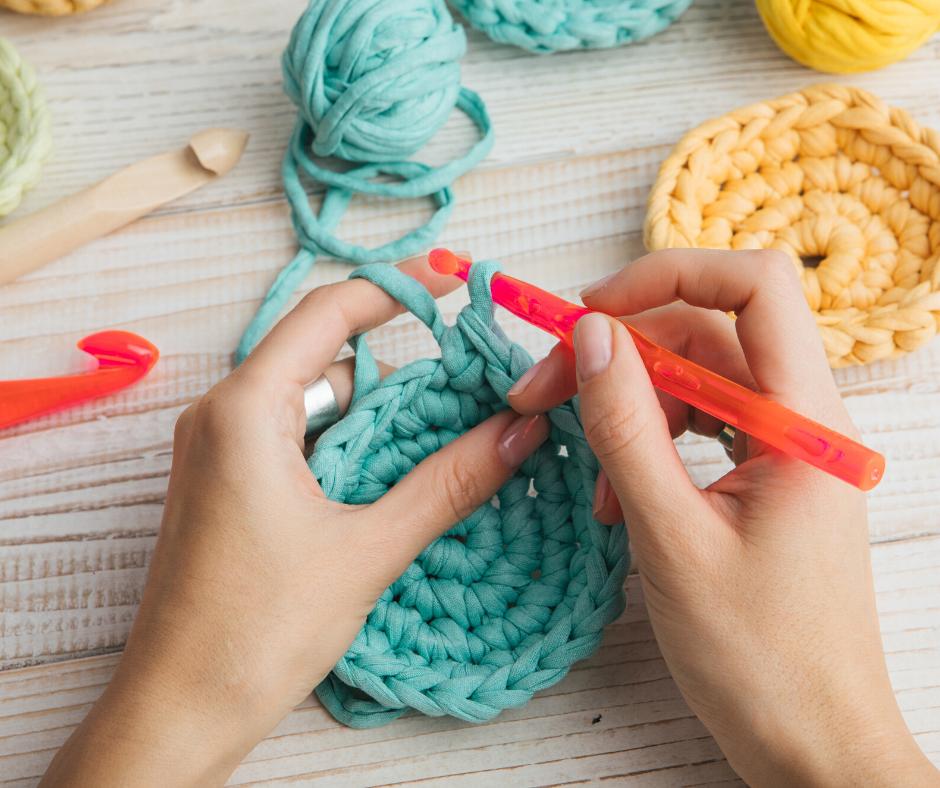
Listen to music.
Multiple studies show that music can increase creativity and focus. Research indicates that listening to classical is only really beneficial if you actually like that style of music, so listen to something you enjoy that isn’t too distracting.
Journal every day.
Julia Cameron, the author of The Artist’s Way and numerous other books on living a creative life, has long touted the benefits of writing three pages in longhand every morning to keep the creative spark glowing. Give yourself permission to write whatever comes into your head, set a timer for a short period to encourage you to write fast, and then just let ’er rip. You might be surprised by what surfaces!
Join a group of creatives.
Creating can be a lonely activity, so head to Facebook to find a group in your area that gather regularly to share ideas and inspiration. You may even get some helpful feedback. Join https://www.facebook.com/groups/MajorcaMallorca/ to find some likeminded souls as well.
Carry an idea notebook.
Inspiration can strike at the most inconvenient times. Carrying a small notebook can help you capture and record ideas that come to you while you’re out and about. You can draw doodles or save clippings. But do it the old-fashioned way—there are benefits to writing longhand.

Go somewhere busy.
Head to a cafe or any place where you can watch people. You might even take notes in the aforementioned idea notebook.
Or go someplace quiet.
Commune with nature in a serene setting where you can clear your head and make room for creative thoughts to flow in. Get outside. You don’t have to climb a mountain to get a boost. In fact, doing nothing while outside—or maybe just walking—is all the better. Being in nature can boost creative thinking skills: One study in 2012 found that hikers performed as much as 50 per cent better at creative problem-solving after spending four days out in the woods, disconnected from technology.
Do something brave.
Shy? Join an improv group. Clumsy? Take a beginner’s dance class. Do something that pushes your limits and then use your experiences for inspiration.
Attend a creative event.
Go to a poetry reading, book signing, recital, art show... The world is full of creators doing creative things—go watch them and you may find yourself inspired to join them.

Perform a mundane task.
Research shows that performing simple tasks can release creative thoughts. You never know what inspiration will wash over you while you’re folding laundry or sorting the widgets in your widget drawer.
Make a list.
If you’re stuck on something, jot down a list of as many ideas as you can think of. (Or try this List of 100 technique.) Focus on quantity over quality—you’ll sort out and refine the good ones later.
Have a conversation.
The simple act of chatting with others can get the creative juices flowing. But don’t just make small talk—dig in and really get to know someone.
Allow time for doing nothing.
Giving your mind space to work on problems (or recognise new ones) can be much more productive than stimulating your brain with lots of input all the time.
Look around at what you can tweak.
From the iPhone to drones that are adapted to carry medicines, some of the most useful ideas aren’t altogether new. They’re riffs on stuff that already exists. The real genius of Apple’s Steve Jobs, writer Malcolm Gladwell contends, was that he was a “tweaker.” Author Eric Weiner also found this in writing about the geography of genius, noting, “We think of the ancient Athenians as inventing democracy, art, and philosophy. But they actually borrowed or ‘stole’ from other places.”

Make time to play.
“We tend to think about delight, play, and recreational leisure as the spoils of progress. In fact, it goes in the other direction,” says writer Steven Johnson. “Many transformative ideas begin with this sense of delight, wonder, or fun.” From robots to artificial intelligence, many key inventions began essentially as toys.
Try, try again.
A creative spark isn’t worth much without perseverance, according to those who study these things. “The number one predictor of impact is productivity,” says Dean Keith Simonton, professor emeritus of psychology at the University of California, Davis, Those who put in the work to perfect an idea—and keep trying new ones when the first attempt fails—are likelier to make a mark, so don’t give up! Whatever you want to try, give it a good go, don’t abandon it after the first attempt!
Sources: National Geographic and Grammarly.






No comments
To be able to write a comment, you have to be registered and logged in
Currently there are no comments.